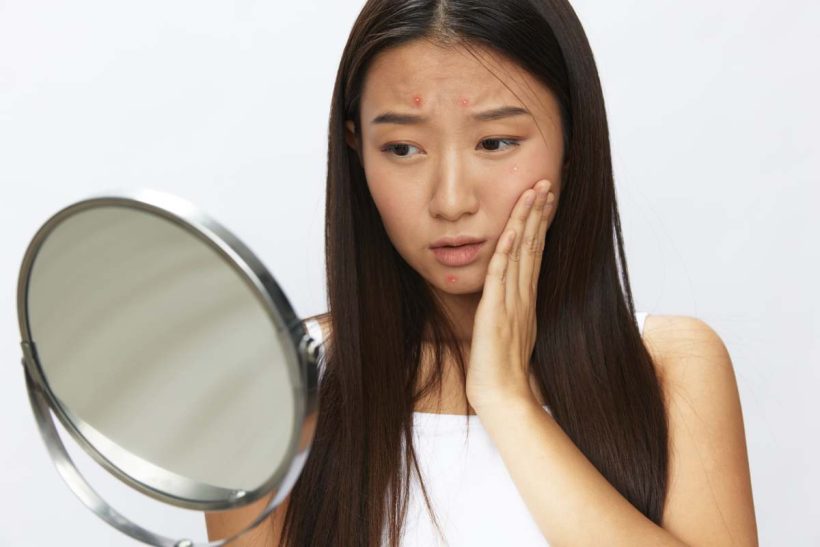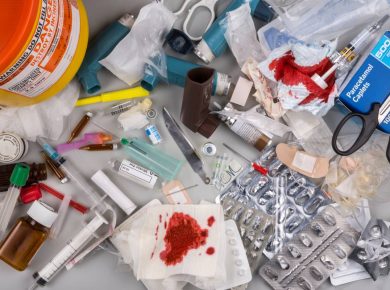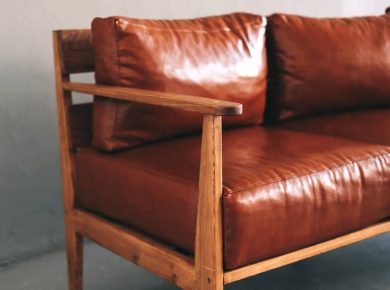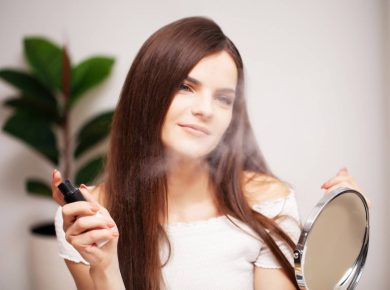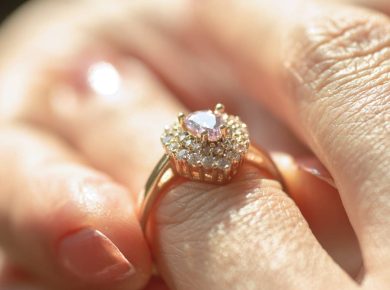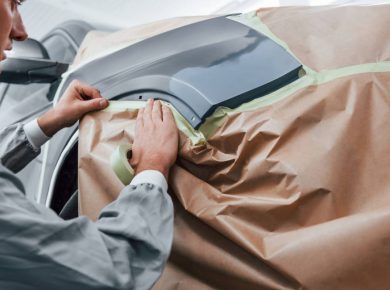Acne, a common skin condition affecting millions worldwide, often triggers misconceptions and frustrations. Many believe it stems from poor hygiene or diet alone, yet its causes are multifaceted, involving hormones, bacteria, and genetics.
Understanding how to treat acne effectively requires a nuanced approach that addresses both skincare practices and lifestyle adjustments. This article explores comprehensive strategies to manage acne, empowering individuals to achieve clearer skin and greater confidence.
Does acne relate to dirtiness?
Acne is a common skin condition that affects many people, especially during adolescence. It’s often misunderstood to be caused by dirtiness or poor hygiene, but the reality is a bit more complex.
Firstly, acne develops primarily due to a combination of factors involving oil production, bacteria, clogged pores, and inflammation. Here’s a breakdown of how these factors contribute to acne:
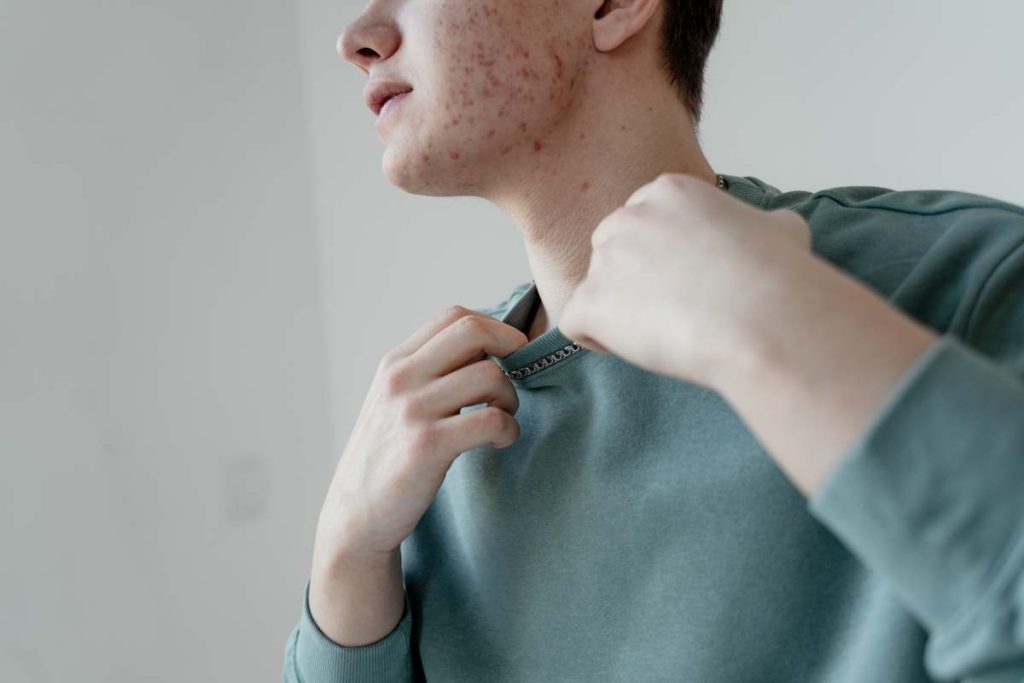
- Oil Production: Our skin naturally produces oil (sebum) to keep it moisturized. During adolescence, hormonal changes can lead to increased sebum production. When too much sebum is produced, it can mix with dead skin cells and clog hair follicles (pores).
- Bacteria: The skin has a bacterium called Propionibacterium acnes (P. acnes) which is normally present in small numbers. However, when pores are clogged, P. acnes can multiply rapidly, leading to inflammation and the formation of pimples.
- Clogged Pores: When dead skin cells mix with excess oil, they can form a plug in the hair follicles. This plug prevents the skin from shedding normally and can result in the development of whiteheads or blackheads.
Now, regarding the idea of dirtiness and acne:
- Dirt and Acne: Acne is not caused by dirt on the skin. While it’s important to keep the skin clean to prevent the buildup of excess oil and dead skin cells, excessive scrubbing or using harsh cleansers can actually worsen acne by irritating the skin and stripping it of natural oils. Gentle cleansing with a mild cleanser is generally recommended.
- Hygiene and Acne: Good hygiene practices such as regular washing of the face with a gentle cleanser can help prevent acne by removing excess oil, dirt, and sweat. However, acne is not solely caused by poor hygiene. Even people with excellent hygiene habits can develop acne due to hormonal changes, genetics, or other factors.
- Misconceptions: One common misconception is that acne is a sign of being unclean or dirty. This misconception can lead to stigma and misunderstandings. Acne is a medical condition influenced by multiple factors, and blaming it solely on hygiene oversimplifies the issue.
- Treatment: Treating acne often involves a combination of approaches, including topical treatments (like benzoyl peroxide or salicylic acid), oral medications (prescribed by a dermatologist), and sometimes lifestyle changes (such as diet or stress management). It’s important to consult a dermatologist to determine the best treatment plan for individual cases of acne.
While it’s important to maintain good hygiene practices for overall skin health, acne is not caused by dirtiness or poor hygiene alone. Understanding the complex factors involved in acne development can help dispel myths and promote effective treatment strategies.
If you or someone you know is struggling with acne, seeking advice from a dermatologist is the best course of action to manage and treat the condition effectively.
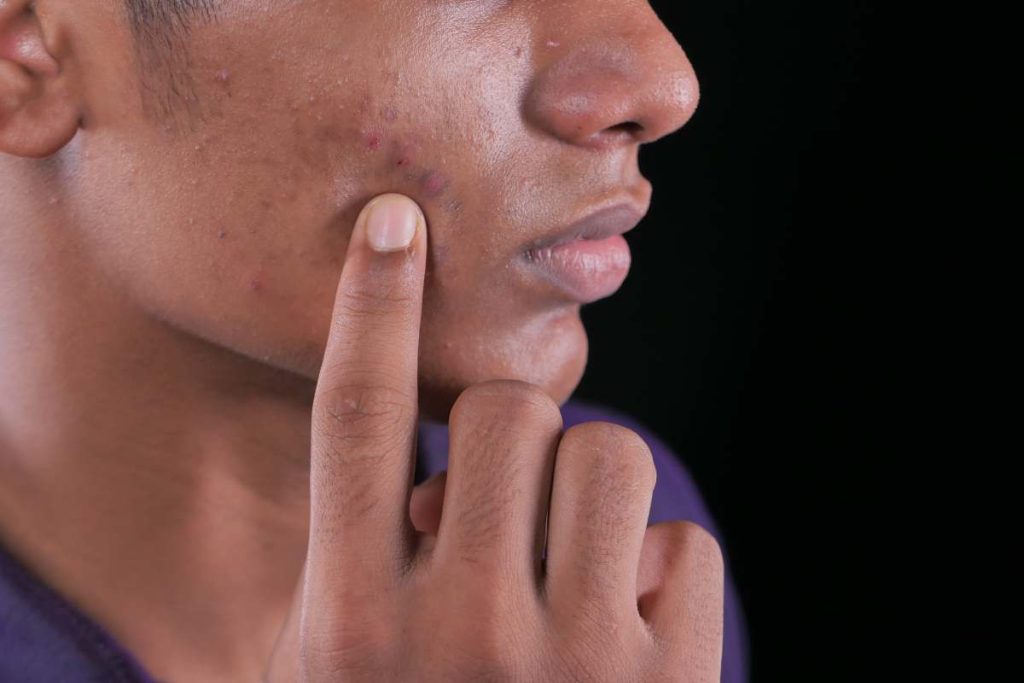
What age is acne the worst?
Acne can vary in severity and timing for each individual, but it generally peaks during adolescence. The worst age for acne tends to be between the ages of 14 and 17 years, though it can start earlier or continue into adulthood for some people.
Here’s a breakdown of how acne manifests across different age groups:
- Adolescence (Puberty):
- Typical Age Range: Generally between 12 to 18 years old.
- Characteristics: Hormonal changes during puberty stimulate increased oil production in the skin. This excess oil, combined with shedding of skin cells and presence of bacteria, can lead to clogged pores and acne outbreaks. Hormonal fluctuations, especially androgens like testosterone, play a significant role in acne development during this time.
- Young Adulthood:
- Typical Age Range: Late teens to early 20s.
- Characteristics: While acne often improves after adolescence, some individuals may continue to experience breakouts into their 20s. Stress, dietary factors, and skincare routines can influence acne during this period. Women may also experience hormonal acne related to menstrual cycles.
- Adulthood:
- Typical Age Range: Beyond the early 20s.
- Characteristics: Acne usually diminishes with age, but adult-onset acne can occur. This type of acne often appears as persistent low-grade breakouts or occasional flare-ups, influenced by factors such as hormonal changes (e.g., pregnancy, menopause), stress, and use of certain medications.
Factors influencing the severity and persistence of acne at any age include genetics, lifestyle factors (such as diet and skincare habits), and overall health. It’s important to note that while acne can be distressing, especially during its peak in adolescence, effective treatments are available.
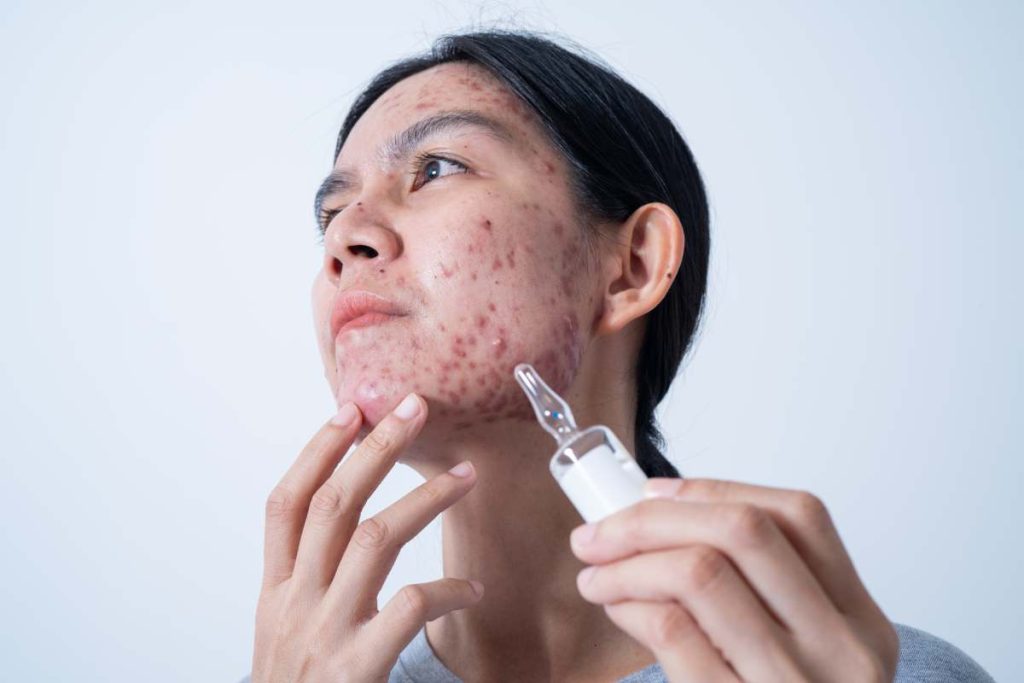
How to treat acne?
Treating acne involves a combination of skincare practices, lifestyle adjustments, and, in some cases, medical interventions. Here’s a comprehensive guide on how to treat acne effectively:
Skincare Practices:
- Gentle Cleansing: Use a mild cleanser twice daily (morning and night) to remove excess oil, dirt, and impurities without irritating the skin. Avoid harsh scrubbing, as it can worsen acne.
- Non-Comedogenic Products: Choose skincare and cosmetic products labelled as “non-comedogenic” or “oil-free” to prevent clogging of pores.
- Moisturize: Use a lightweight, non-comedogenic moisturizer to keep the skin hydrated without adding excess oil.
- Avoid Touching Face: Refrain from touching your face unnecessarily, as this can transfer dirt and bacteria from your hands to your skin.
Lifestyle Adjustments:
- Healthy Diet: Some studies suggest that certain foods may exacerbate acne in some individuals. Consider reducing intake of sugary foods, dairy products, and foods high in refined carbohydrates. Instead, focus on a balanced diet rich in fruits, vegetables, and whole grains.
- Hydration: Drink plenty of water to keep your skin hydrated and help flush out toxins.
- Manage Stress: Stress can trigger hormonal changes that may worsen acne. Practice stress-reducing techniques such as deep breathing, meditation, or yoga.
Over-the-Counter Treatments:
- Topical Treatments: Over-the-counter creams, gels, or lotions containing ingredients like benzoyl peroxide, salicylic acid, or sulfur can help reduce acne-causing bacteria, unclog pores, and reduce inflammation. Apply as directed.
- Retinoids: Products containing adapalene or tretinoin, available over-the-counter or by prescription, can help regulate skin cell turnover and prevent clogged pores.
Medical Interventions:
- Prescription Medications: If over-the-counter treatments don’t improve acne, a dermatologist may prescribe oral antibiotics (to reduce bacteria and inflammation) or oral contraceptives (for hormonal acne in women).
- Topical Prescription Treatments: Stronger topical treatments like prescription-strength retinoids or combination therapies may be prescribed to target stubborn acne.
Professional Treatments:
- Chemical Peels: Dermatologists can perform chemical peels to exfoliate the skin and reduce acne.
- Light Therapy: Procedures like blue light therapy or photodynamic therapy may be used to kill acne-causing bacteria and reduce inflammation.
Important Considerations:
- Consistency: Stick to your treatment plan consistently and be patient, as it may take several weeks to see improvement.
- Avoid Picking or Squeezing: This can worsen inflammation and increase the risk of scarring.
- Consult a Dermatologist: If your acne is severe, persistent, or causing emotional distress, consult a dermatologist for personalized treatment recommendations.
Final thought
If you have acne, avoid touching or picking at your pimples because it can cause scars or dark spots. Instead, wash your face gently with a mild cleanser twice daily, especially after vigorous exercise. Avoid using strong soaps or harsh scrubbing pads as they can worsen the problem. Regularly shampooing your hair is also important, particularly if it tends to be oily.
There are several over-the-counter medications that can effectively treat mild acne, though it may take about 8 weeks to see improvement. For more severe acne, it’s advisable to consult your doctor to discuss treatment options.
Researchers are actively developing new drugs and skin care to treat acne and are also working to better understand its causes for future remedies. In the meantime, various treatments are available that may provide relief.
